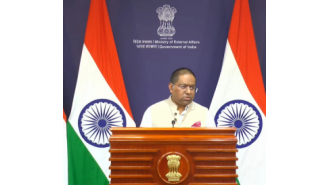How reliable are these 2024 headlines written by famous author 50 years ago?
Unfortunately, we currently do not have any settlements on the moon.

Throughout the years, many individuals have attempted to predict the future, from blind fortune-tellers to technology experts. Each with their own level of success. One such glance into the future was featured in the August 1974 issue of Saturday Review World, a reader's digest publication.
This 136-page issue included contributions from famous figures like Neil Armstrong, Wehrner von Braun, and Jacques Cousteau, all sharing their thoughts on what the world would be like in 50 years - 2024. Among these notable names was iconic science fiction writer, Isaac Asimov, known for his famous "three laws of robotics" and his collection of sci-fi short stories, I, Robot, which inspired the 2004 film of the same name starring Will Smith. Asimov's feature in this issue imagined news stories written 50 years into the future, giving readers a glimpse into what he believed may come to pass.
Some of his predictions were spot on, while others missed the mark. Let's take a look back and see what he got right, and what he got wrong. One of Asimov's predictions was that by 2026, the United States would no longer be considered an individual country, but rather a part of a larger "global economic board." He warned that this could lead to demonstrations from nationalists.
However, as we know, this has not come to pass. National and cultural identities are still just as important today as they were in 1974. Another prediction from Asimov was that by 2024, there would be a colony on the moon, home to 500,000 people.
He even imagined that there would be "native Lunarites," 38 children born and raised on the moon. While humans have certainly made progress in space exploration, the idea of living on the moon is still far from reality. Asimov also seemed to suggest a future of veganism, as he called chicken "old fashioned" and envisioned a world where people would eat "chicken-flavoured pressed-nut-bean loaf" instead of raising and breeding poultry.
He even mentioned that "their eggs are quite edible if correctly prepared," imagining a time when people would have forgotten the taste and preparation methods of animal products. While vegan diets are gaining popularity, they are far from the norm and have not replaced the popularity of meat. One prediction that was fairly accurate was Asimov's hint at the advancement of fertility treatments.
He mentioned "Jenny, the little girl with the glass mother," who was believed to be the first test-tube baby developed in a "glass placenta." While IVF was not yet developed at the time of the article, it was soon after and has continued to advance, making it possible for more and more parents to have children. However, the idea of fully developing a baby outside of the womb is still a long way from becoming a reality. In conclusion, Asimov's predictions may have been patchy in terms of accuracy, but one thing is certain - his imagination and foresight were truly ahead of his time.
While some of his ideas may have missed the mark, they serve as a reminder of the possibilities and potential for the future.










